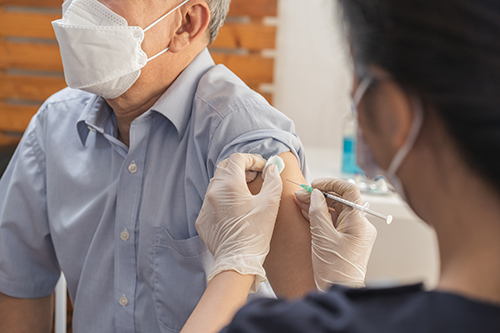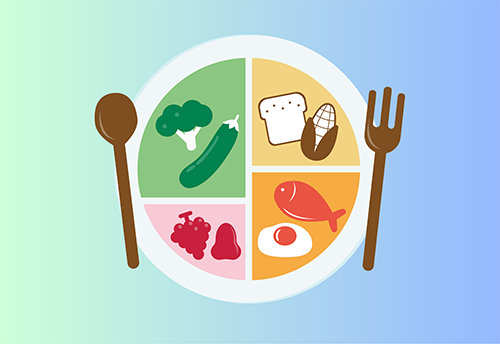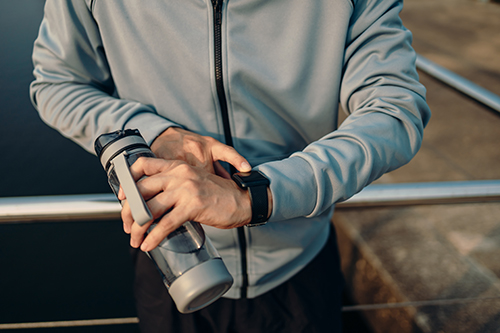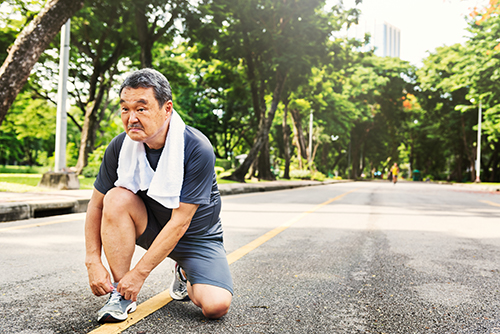Father’s Day Special: 7 Tips to Help Your Dad Stay in the Pink of Health

The best gift we could ever grant our loved ones is health. Appreciation can be shown in various ways. Instead of getting your dad the latest smart phone or fancy gadget, read on to find out how you can help your dad stay healthy in the long run!
1. Health Screening
As one ages, their risks of certain conditions increase too. Besides the three highs, – high blood pressure, high cholesterol, and high blood sugar (also known as diabetes mellitus) – cancers relating to the colon and rectum, prostate, and lungs are among the most common cancers affecting men in Singapore.

Men are urged to get screened early for the early detection of cancers and other health problems. Early detection is key to staying healthy. Consider bringing your dad on a routine health check this June.
Click here to learn more about the health screening packages available.
2. Staying Up-to-date with Vaccinations
Have you heard about the National Adult Immunisation Schedule (NAIS)? Established by the Ministry of Health in 2017, NAIS provides guidance on vaccinations for adults to protect themselves against vaccine-preventable disease. They include influenza, varicella (also known as chicken pox), pneumococcal disease, hepatitis B, and more.

Depending on one’s age, medical condition, or past vaccination history, there are vaccines recommended to be taken periodically. For instance, the influenza vaccine is advised to be taken either one dose annually or per season to protect one against the flu viruses.
Click here to find out what are the vaccinations your dad should stay updated with, and schedule a vaccination here.
3. Adopt a Well-balanced Diet
As we age, our metabolic rate decreases. This means that the rate that our body breaks down food and burns calories is slower, and can easily lead to weight gain. Adults aged 60 and above tend to experience a decline in their basal metabolic rate. This comes on top of the progressive loss of muscle mass and strength that comes with age.
When eating out with your dad or a senior, incorporate foods rich in protein as they can help to build and repair the body. High protein meat and ingredients such as fish or tofu, are some delicious options that families can include during mealtimes. Calcium is another mineral the body needs to maintain and build strong bones. Introduce healthier options such as low-fat milk or yoghurt that seniors can enjoy at home, all while meeting their dietary needs.

Eating a wide variety of foods to meet one’s daily nutritional needs is one way to ensure our meals are balanced. The “quarter, quarter, half” rule that the Health Promotion Board recommends is one way to understand how meals can be designed:
- Quarter plate with wholegrains
- Quarter plate with good sources of protein
- Half plate with fruits and vegetables
As the saying goes, “you are what you eat”. So, eat well, to be well!
Think your dad or a senior at home would benefit from a detailed meal plan? Consult our dietitian to learn how we can tailor a meal plan to meet their health needs.
4. Remind Dad to Stay Hydrated
One’s sense of thirst changes as we age, and this happens more often in older adults than we realise. Dehydration may occur with poor water intake. Alongside medications some adults take for chronic diseases, water pills such as laxatives and diuretics may also add to hydration issues and cause them to not consume enough fluids.
Besides, older adults are also more sensitive to heat. As average temperatures rise in tandem with the humidity in Singapore, it is more important than ever to ensure we remind them to stay hydrated.

Tracking their water intake is one way to help them develop the habit of drinking water, and stay motivated. This can be done through hydration applications available on the App Store or Google Play.
For a practical gift, you may also consider getting a smart water bottle, which comes with functions such as reminders and hydration goals.
5. Help Dad Stay Active
Exercises such as cardio and strength training are beneficial for men after the age of 50. These exercises can get the heart pumping and build muscle mass. Some examples include walking, cycling, and working out with dumb bells.

Engaging in physical activity can improve one’s heart health, flexibility, build muscle strength, improve balance, and reduce the risk of certain diseases. However, it is advisable for men who lead a sedentary lifestyle to consult their doctor before trying out new exercise programmes.
Not too sure how much exercise your dad should get in a week, especially if he has an existing chronic condition? Consult a family physician and discuss a possible care plan to help him reach his health goals.
6. Help Dad Maintain a Healthy BMI
The importance of maintaining a healthy body mass index (BMI) is so that our weight does not fall into the obese range. Individuals who are obese have excess body fat accumulated, which can shorten one’s life expectancy and put them at risk for a variety of health problems.

Some common health problems linked to obesity include high blood pressure, coronary heart disease, diabetes, bone and joint disorders, and certain cancers. Aside from reducing the risk of these diseases, losing excess weight, and maintaining a healthy BMI can make one feel better about themselves.
7. Lifestyle Modifications
Smoking puts one at risk for cancer, heart disease, stroke, lung diseases, diabetes, and other serious health problems. The optimal solution to reduce the risk of such diseases is to quit smoking if you are a smoker, or to not smoke at all.
One’s risk of contracting such diseases increases with age. The risk increases when smoking is involved. If your dad enjoys drinking alcohol, ensure that he consumes no more than two drinks a day.
Consistency and moderation are key to building a healthier lifestyle. Share this article with your loved ones and help them stay in the pink of health!
References:
1 Singapore Cancer Registry. 2022. Singapore Cancer Registry Annual Report 2020. Retrieved from: https://nrdo.gov.sg/docs/librariesprovider3/default-document-library/scr-2020-annual-report_web-release.pdf
This article is reviewed by Dr Ho Woon Yang, Senior Family Physician, Raffles Medical.



















